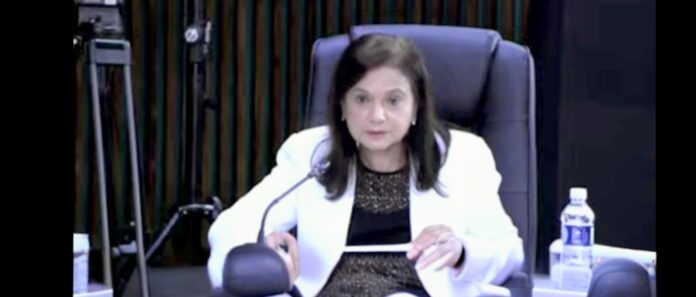In a hearing thick with legal interpretation and constitutional hair-splitting, National Prosecuting Authority (NPA) boss Advocate Shamila Batohi spent Day 2 of the Nkabinde Enquiry defending — and redefining — what it truly means to be South Africa’s prosecutor-in-chief.
The inquiry is probing the fitness of South Gauteng Director of Public Prosecutions (DPP) Andrew Chauke to hold office. But very quickly, the spotlight shifted from Chauke to Batohi herself, as panel members interrogated the scope of her review powers under Section 22 of the NPA Act.
Chauke faces an inquiry into claims he shielded politically connected suspects from prosecution. He allegedly also pursued weak cases against others. And this prompted President Cyril Ramaphosa to question his fitness for office and order a formal probe.
Explaining her authority
Returning to clarify her testimony from Day 1, Batohi repeatedly emphasised that the law is unambiguous about her authority.
“Paragraph 2C of Section 22 states that ‘In accordance with Section 179 of the Constitution, the national director may review a decision to prosecute or not to prosecute’,” she said.
“In my view, that gives the national director the power to review any decision to prosecute or not to prosecute. So, if we stop there, the national director can review any decision to prosecute, taken at any time by any person. And that would include a previous national director.”
Her interpretation is as simple as it is sweeping. If a prosecutorial decision has been taken — past or present — the sitting NDPP can review it.
But chairperson and retired Constitutional Court Justice Bess Nkabinde was not sold. She pushed beyond the theory and into practicality — and the tension began to show.
Decision to prosecute unpacked
“Let’s look at the practical scenario because I’m getting confused. Looking at the number of former NDPPs and those who acted,” Nkabinde said.
“Looking at the number of former NDPPs… Let us assume that former acting NDPP Mr Mxolisi Nxasana had made certain decisions. Will the subsequent NDPP have the power to review the decision of the former? In this case of Mr Nxasana?”
Batohi did not flinch.
“In my view, chairperson, the new NDPP would have that power to review the decision of a previous NDPP. It doesn’t matter who it is. The current NDPP would have that power.”
That response triggered the sharpest exchange of the morning. Nkabinde, almost amused, turned the logic back on Batohi.
“If this is the case, it essentially means that you are reviewing your own decision because you are in the same office. It is the office, not the name of the incumbent. In this event, Mr Nxasana was in the same office, your office. How then do you review your own decision?”
She pressed further.
“You have taken a decision five years ago as the national director of public prosecutions. Two years later you come back and review your own decision, the decision of that office,” she said.
“I’m not sure if this example is apposite. A judge in the High Court makes a decision. That judge cannot come back later and reconsider his or her own decision because [the person] is functus officio. The same principle should apply in relation to your office.”
Requirement to reconsider evidence
Batohi argued that the analogy to a High Court judge was misplaced. Because prosecutors — including DPPs — are not only allowed but required to reconsider evidence as new information emerges.
“In the position of a DPP, once you take a decision as a DPP, you can always, as the same DPP, if you get information, you can actually review that decision in a sense of relook at the evidence, decide whether that decision was the correct one. You can change your decision as a DPP,” she said.
She added that reviewing previous decisions isn’t an anomaly — it’s a legal expectation.
“I think there’s a difference in the functus officio principle in terms of how it applies with regards to prosecutors and a DPP. I think we need to look at this carefully because in my view, DPPs are required in terms of our policy to reconsider evidence. To reconsider matters all the time. It happens that we would actually prosecute and then for various reasons decide not to prosecute.”
Nkabinde responded by warning that if Batohi’s reading of the law is accurate, then the legal prescript is deeply troubling for the rights of ordinary South Africans. She instructed Batohi to reflect on the matter and return with a considered response at a later stage.



